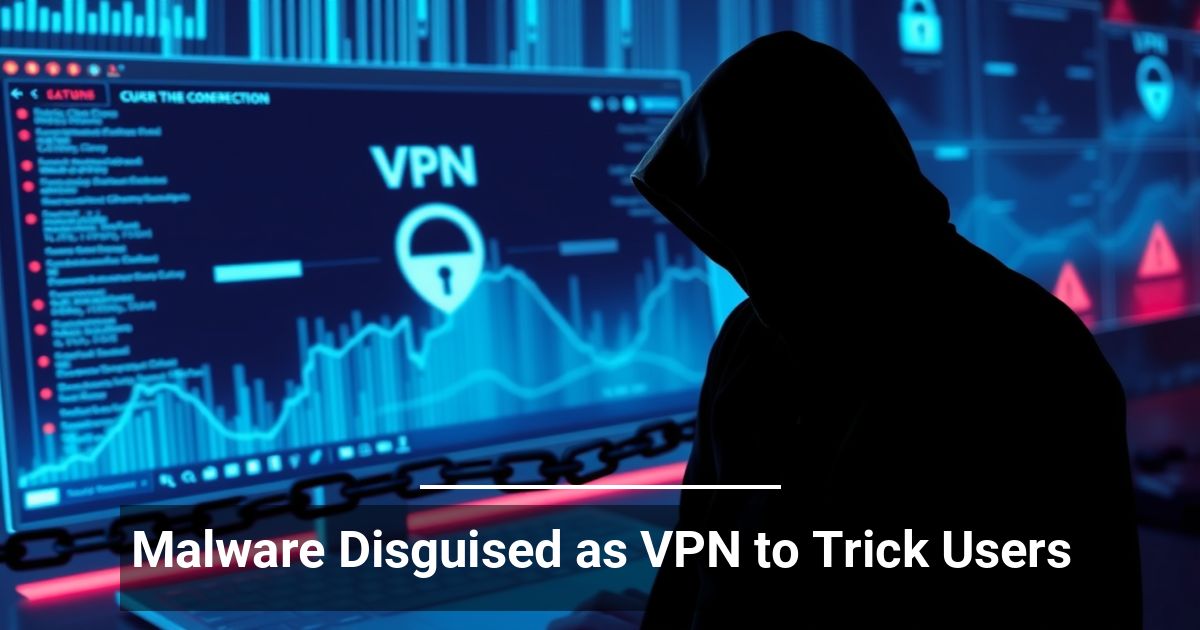
The Hidden Threat of Malware Disguised as VPN Services
If your employees use a VPN for secure remote access to your company's network, you need to be aware of a new cybersecurity threat targeting enterprises. Researchers have uncovered that cybercriminals are deploying malware disguised as legitimate VPN services, tricking users into downloading a dangerous version of a trusted program.
Malware Masquerading as Palo Alto GlobalProtect VPN
The latest threat involves a fake version of the widely used Palo Alto GlobalProtect VPN, which is typically known for secure remote access, endpoint security, and advanced threat protection. Unfortunately, the malicious version of this VPN does the opposite. Once downloaded, it can steal information, upload and download files, and run unauthorized scripts, leaving your network exposed.
How This Malware Spreads
Though this malware is primarily targeting businesses in the Middle East, it poses a global risk. The malware spreads via phishing attacks that target specific businesses, often through email or instant messaging. Another method of spread is SEO poisoning, where cybercriminals use deceptive advertising and search engine tactics to trick users into downloading the malicious VPN.
Once the user encounters the fake VPN service, they are prompted to install a setup.exe file that mimics the legitimate GlobalProtect software. Behind the scenes, the malware, disguised as GlobalProtect.exe, is deployed and bypasses security measures through advanced coding techniques that evade detection.
If you're concerned about how this threat could impact your business, click here to schedule a discovery call. Our team at Lazer IT Consultants can help you fortify your defenses.
How to Avoid These Cyber Threats
Protecting your business from threats like malware-disguised VPNs requires a multifaceted approach, with education and proactive defense strategies at its core. Since phishing attacks are the primary method for spreading this malware, it's crucial to implement effective phishing protection measures.
The first line of defense is educating your staff. Every employee plays a role in preventing phishing and malware attacks. Teach them how to spot spoofed emails and phishing attempts, such as by verifying the sender’s name and email address, carefully examining the content of messages, and always confirming the legitimacy of links and attachments.
Suspicious links are another red flag. Often, malware links contain misspellings, unusual letter substitutions, or oddities in the company name. Always double-check a link before clicking on it. When in doubt, use a link scanner or consult a reliable source.
While security tools like sandboxing, behavioral analysis, and link scanning can help mitigate phishing attacks, the sophistication of this malware requires more. Ensuring employees only use vetted VPN services from trusted sources, and implementing strict policies about where they can download software, can help minimize your exposure to such threats.
To stay ahead of the latest cybersecurity threats, Sign Up to Receive Our FREE Cyber Security Tip of the Week. No catch, just timely advice to keep your business safe.
Conclusion
Malware disguised as trusted VPN services is a serious and emerging threat that requires immediate attention. By educating your employees, implementing strong phishing defenses, and using reliable security software, you can significantly reduce the risk to your business.
To learn more about how our network security services can help you protect your company from threats like this, get in touch with us today.



